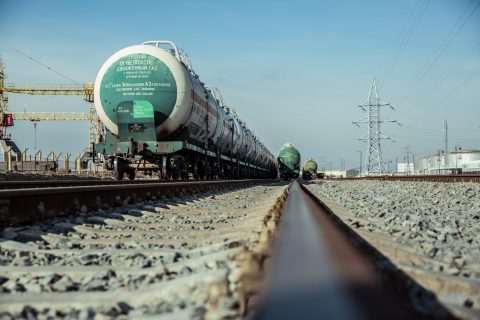More fixed timetable trains: a new trend spurring the Silk Road?

The first fixed timetable eastbound train service will be launched by DB Cargo Eurasia on 27 June, connecting Duisburg and Xi’an. The new service will deliver products between the two cities in around 11 days. Additionally, as announced by Xi’an International Inland Port, one more westbound fixed timetable service will be added to this route on Saturday, 1 July.
Currently, there is a weekly fixed timetable service connecting Xi’an and Duisburg, departing from Xi’an at exactly 3:55 every Wednesday. However, it is only available for westbound trips and has an average delivery time of 12,3 days. Starting next month, one could expect three fixed timetable trains per week in Xi’an: two westbound and one eastbound per week. Could fixed timetable services become more regular and include more market players?
The fixed timetable
The first fixed timetable train arrived in Duisburg on 7 November. Previously, there was no concrete timetable for the China-Europe Express service. Times of arrival were based on the situation on the ground in each respective country of transit. However, with this fixed scheme, the parties involved know exactly when the train is arriving.
Compared to normal freight train operations between Duisburg and Xi’an, this fixed timetable service has reduced the overall transit time by 8,26 days. “This fixed timetable service means that the service is prioritised over other Eurasian services,” explained Guanzhe Cao, head of the Asia desk at duisport.
Can open access work?
Could other rail freight players also be involved in the fixed timetable game? Some industry experts have expressed positivity. China Railways is currently trying to promote this fixed timetable service and provide the necessary support for the carriers along the route; thus, if other companies show interest in getting involved, they could also collaborate with China Railways to join it.
Mingquan Li, vice president of Xi’an International Land Port, said that Xi’an International has only cooperated with DB Cargo in executing this fixed timetable service. “To operate the fixed timetable service, it’s critical that the operator can integrate the coordination capabilities of the various railway stakeholders”, he explained.
However, even if other European rail operators could join the fixed timetable services in the future, speed would not be guaranteed for all Silk Road trains. “Railway capacity resources are limited. If all the trains are turned into fixed schedule trains, it will be the same as the current normal trains again,” said Li. As a result, a fixed timetable could only work with specific services between major hubs and not become universal.
Also read:
-
New Silk Road record: Xi’an-Duisburg in 10 days with fixed timetable
-
Kazakhstan reconfigures its logistical position, and for a good reason
You just read one of our premium articles free of charge
Want full access? Take advantage of our exclusive offer




